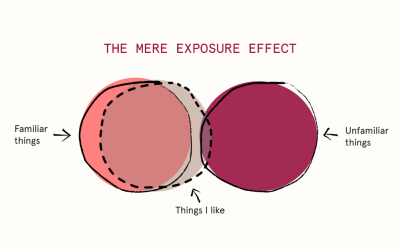Georgi Roberts | Thursday 1st August 2013
You’ll hear the words ‘Digital Economy’ a lot over the next few years .
It feels like they are buzz words at the moment because there are seminars
about it, there is constant media on the topic, and you’ll be told that
you’re living in it, or if your business doesn’t get on the Digital
Economy train, you’ll be turned away like an analogue TV set.
 So what does it mean?
So what does it mean?
To me, the ‘Digital Economy’ is about working and living using online capabilities. It’s about your company’s website; it’s about using YouTube to help you fix that squeaky door; it’s about your children visiting their friend’s Minecraft creations online.
Aren’t we in it now?
Well, yes kind of. We’re trying to be in it, but in my opinion we are not fully committed to it for three reasons – not all within our control.
1. Education
How do we know what we can do in this Digital Economy – what’s out there that my business can use?
Keeping up with innovation and supporting innovation is important (you could even be an innovator yourself). Business needs to keep up-to-date to know how to take advantage of this type of technology and keep abreast of new developments – but this isn’t always easy.
Commit to:
- Reading about these digital innovations – www.mashable.com often has a good summary of what business is doing, read the Technology section of your favourite newspaper (I suggest online, whilst it’s still free)
- Take a look at kickstarter.com which shows innovative projects that require funding
- Talk to people in the industry who make it their job to know what is going on, and who can suggest ways in which your business can get involved.
2. Technology
I went to a ‘Digital Economy Forum’ last night where they showed culinary students in Tasmania being taught online by a Chef in a different location. It was inspiring, with three cameras showing different angles of preparation techniques. Even more fascinating was the students wearing harness cameras, enabling their tutor to evaluate the students’ performance. Fantastic. I loved it, great idea.
One thing however – to get a live feed from three different camera angles and sound that all works seamlessly takes a decent amount of bandwidth. Sometimes just having a Skype conversation with a client reminds me of overseas phone calls of 10 years ago with long delays and echos.
The Government is driving this with funding for projects such as the above event, showcasing the capabilities of the National Broadband Network. Politics aside, there are other providers who are also forging ahead to offer a faster internet service. As a business, you’ll need to know not only what available now, but what will be available in the future.
Commit to:
- Knowing when NBN will become available in your area, but also when it will be available for your stakeholders eg clients
- Being open to finding out who else uses who. What’s their download speed? This knowledge should be shared amongst business.
3. Mindset
We’re not all on YouTube 24/7, right? Some of us don’t want to chat with strangers whilst watching MasterChef, and prefer to read the Tweets on Q&A rather than participating.
However, whether we like it or not, this ‘Digital Economy’ thing is going to surround us whether we are on board or not, and business needs to sit up and participate.
As time moves on, the need will become greater for video content, live video feeds, customer service via social media and instant results.
This is especially true as there is a generation growing up who already view this as second nature, and the question will be ‘why aren’t they doing that?’ rather than today’s admiration for content via new technology innovations.
Commit to:
Experimenting, evaluating and being educated. The financial barrier is dropping incredibly quickly.
- Put some video on your website, and track how popular it is. Not sure how to do it? Get some help, or you know what? YouTube has some great videos on how to use YouTube.
- Offer a Skype session with a remote client – see if they get more out of a face-to-face conversation
- Use Google+ and have an online group discussion through a Hangout
- Find out where your clients are at on the Digital Economy scale and offer to move forward together
My current favourite examples
UniSA recently held ‘UniJam’ http://w3.unisa.edu.au/unijam/ , an online brainstorming event and ideas generator. An incredibly high participation rate pushed forward key ideas, with conversations reaching over 50 countries. Full credit to the Vice Chancellor David Lloyd for being highly involved and demonstrating that leadership on this front needs to come from the top. There’s a great behind the scenes video here:
My other favourite is the ‘The O’, an innovative mobile application that guides visitors through the Museum of Old and New Art (MONA) in Tasmania, delivering rich content about the artworks nearest to them. Currently, this can run from a low broadband network, but there is real potential to push this further.
The opportunities are endless AND exciting. Every business (I mean EVERY business) will have more opportunities, the more digital we become.
Business needs to be open to these new ideas, and be willing to either spend time participating and experimenting, or engage those who can. It’s an exciting time to be in business. Let’s get digital.




